
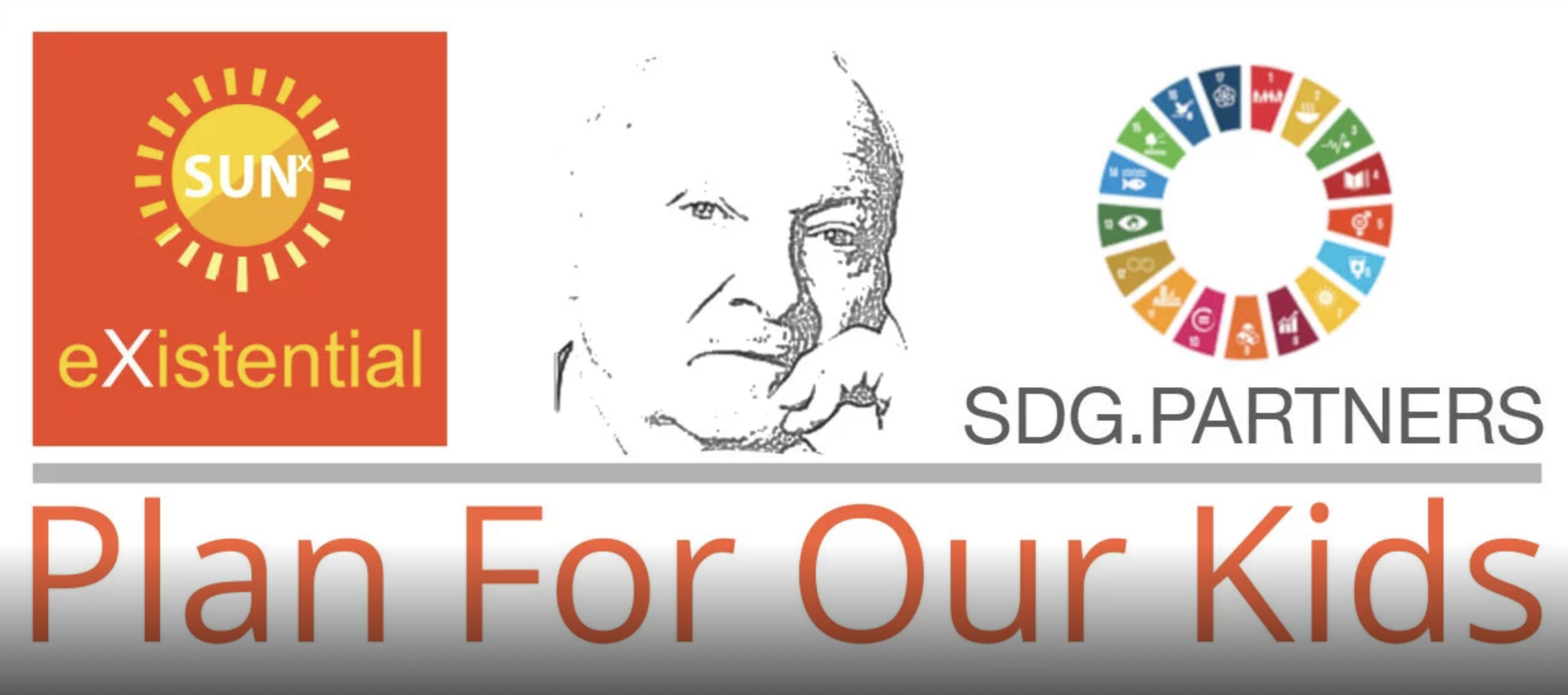
WISeKey, WISeCoin AG and SUNx – Strong Universal Network – sign partnership
WISeKey International Holding Ltd (“WISeKey “) (SIX: WIHN), a leading global cybersecurity, Blockchain and IoT company, WISeCoin AG and the SUNx – Strong Universal Network,announced today a partnership to jointly develop a special purpose Blockchain Center of Excellence in Brussels focusing on the development of standards and technologies to accelerate Climate Friendly Travel.
WISeKey Blockchain technology developed by WISeCoin creates a trusted decentralized and highly efficient way to record carbon emissions using digital identities on the blockchain. Recording all CO2emissions that occur globally and requiring emissions contributors to offset them by purchasing and revoking the corresponding amount of tokenized digital certificates eliminates the need for taxation. Furthermore, companies that have developed technologies that remove CO2 from the atmosphere will be able to register their impact on the blockchain and trigger the new emission of digital certificate tokens that will allow them to further invest in the technology. With this model it will be possible to generate new emission certificates, called WISeTravel Carbon Offset Tokens. In the case of shortfalls, the travel industry will invest into WISeTravel Carbon Offset Tokens in order to fulfill their requirements.
Professor Geoffrey Lipman co-founder of SUNx and President of the International Coalition of Tourism Partners (ICTP), a travel and tourism coalition of global destinations committed to quality service and green growth, said: “We are delighted to cooperate with WISeKey by using state-of-the-art technology to bring a new Blockchain and Identity capacity to the world’s largest challenge, Climate Change Resilience, and one of the world’s largest industries, – travel and tourism. The SUNx ‘Plan for our Kids’ climate friendly travel program calls for 100,000 STRONG Climate Champions by 2030 in all UN States. Through this collaboration we will be in a better position to deliver Climate Friendly Travel – measured, green, 2050 proofed, and meet the Paris Agreement Carbon targets.”
These technologies will help galvanize regional, national, and local stakeholders to develop their own climate change programs using blockchain technologies – for air, oceans, land, cities, industries, rural communities, indigenous people etc. Each with their own vision of priorities and goals. The partnership ultimately aims at transforming overall production, consumption, and investment and better align them with the 2030 The Sustainable Development Goals (SDGs) and the 2050 Climate transformation.
Carlos Moreira, Founder and CEO of WISeKey said: “One of SDGs goals that stands out from the rest and is fundamentally existential, is climate change. Simply put, life on our planet is threatened, and without immediate, concrete actions the consequences will be irreversible – future generations will either freeze or fry and the intensifying consequences of extreme climate will continue to severely aggravate many of the other SDG challenges. Our special purpose Travel & Tourism Industry Blockchain Center of Excellence in Brussels will not only develop and deploy groundbreaking products and solutions for the industry and consumers but also harness the power of technologies to act as a catalyst of change and climate transformation.”
The Paris Agreement, with its 2050 national carbon reduction targets must be fully implemented and intensified every 5 years. In 2017, the world’s largest industrial activity, Travel & Tourism, formally embraced the SDGs, engaging public, private and civil society stakeholders in an International Year of Sustainable Development. Rightly so, to become a real force for good, we must be up with the mainstream curve on building sustainability into all growth and development aspirations. The main challenge remains how to keep Climate Resilience front and center when travel and tourism continues to massively grow.
The Blockchain Center of Excellence in Brussels will be fully interoperable with WISeKey’s network of Blockchain Centers of Excellence in India, Canada, China, Buenos Aires, Malaysia, Mauritius and Rwanda with new centers planned in the MEA region, including two in Saudi Arabia. All these centers will be interconnected with its 3 main hubs: Geneva, Toronto and Beijing, a Trust Triangle operating under a Common Trust Protocol, using WISeKey’s PKI hardened Blockchain technology, bringing trust and security, while maintaining the core Blockchain values of transparency, auditability, and traceability. WISeKey’s implemented and integrated PKI solution is complementary to any Blockchain platform, where it can assist with developing a better trust model for use within a distributed system and create a universal Trust Protocol for the Web 2.0.
Like all other Blockchain Centers of Excellence, the new center in Brussels will assist local Blockchain startups to promote their technologies internationally, facilitate the rapid adaptation and on-boarding of Blockchain-based solutions, foster stronger collaboration between the public, private and academic sectors and cooperate to ensure that the latest technological standards are made available in a safe and trusted manner.
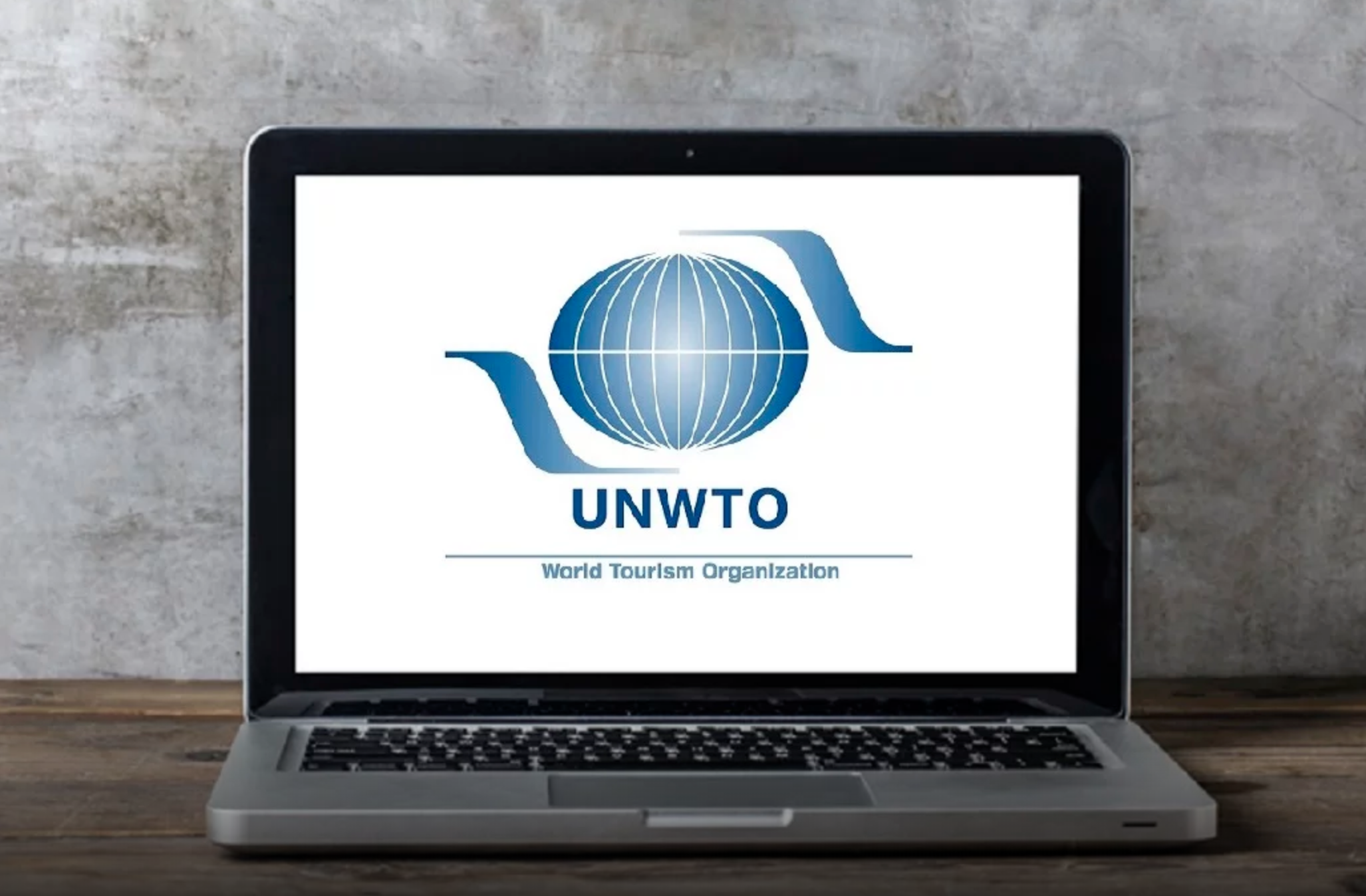
UNWTO partnership to develop digital tourism agenda
The application of new technologies such as Big Data and the Internet of Things are already leading to new uses and applications that will revolutionize services in the tourism sector and responses to new customer demands. For this reason, a new alliance places special emphasis on jointly addressing the challenges and opportunities that this technological change entails and initially takes concrete form in four specific lines of action.
Telefónica and the World Tourism Organization (UNWTO) have announced an agreement to collaborate in the development and implementation of digital entrepreneurship and training initiatives that allow the tourism sector to increase its competitiveness and strengthen its long-term sustainability. This agreement comes at a time of profound technological change that impacts all industrial sectors, where a commitment to innovation and transformation is essential.
First, both parties are committed to promoting innovation and digital entrepreneurship within the tourism sector through the creation of innovation forums, collaboration in open innovation programs with third parties, and public-private collaboration models focused on Open Innovation. The aim of these initiatives is to create the suitable spaces for the development of innovative ideas and outreach to all the actors involved.
New technologies will have an increasing role in the modernization and growth possibilities of the tourism sector and, therefore, both entities will launch initiatives aimed at the use of Internet of Things (IoT), Artificial Intelligence and Big Data, among others. Many of IoT’s solutions, such as Retail, help build customer loyalty by digitizing spaces that create a unique visitor experience. Or mobility solutions, which allow tourists to enjoy rental cars or car-sharing in a completely safe way. An enormous amount of knowledge is generated about the behavior of travelers through the sensors that make up the different IoT services, allowing us to offer them what they particularly need at any given moment.
On the other hand, the analysis of Big Data makes it possible to understand patterns of behavior to better address some of the challenges facing tourism in Latin America and Europe, and to draw relevant conclusions that influence decision-making and public policies. LUCA -Telefónica’s Big Data and AI unit- is already working with national and local tourism organizations in eight countries in Latin America and Europe through more than 40 projects.
Another important point of this agreement is to focus on Digital Education and Training, something essential in a new technological world in which jobs and skills are changing radically, affecting the employability and sustainability of businesses. In this sense, both entities will collaborate through the training platforms managed by Telefónica Educación Digital, such as Miríadax, to promote local and international courses on digital technologies and skills applied to tourism and aimed at different entities in the sector.
Lastly, Telefónica will lend its support to the UNWTO in the development of a specific Digital Agenda for the tourism sector guided by a set of very concrete objectives: to place new technologies at the service of sustainable growth, foster innovation and promote inclusive economic and social development.
The framework agreement between the two organizations has been signed in Madrid by Jaime Cabal, Deputy Secretary-General of the World Tourism Organization, and by Eduardo Navarro, Director of Communication, Corporate Affairs, Branding and Sustainability of Telefónica S.A.
During the signing, Cabal said that “innovation and digital transformation are among the priorities of the World Tourism Organization in order to provide additional impetus to tourism as an ally of sustainable development.” He added, “Together with Telefónica we can help our more than 160 Member States build their tourism innovation ecosystems and create digital tools that facilitate more efficient decision-making thanks to the use of Big Data, artificial intelligence and many other advances.”
For his part, Eduardo Navarro stressed: “This framework agreement is very important because the technologies are drawing the future of travel and tourism. Virtual and augmented reality, Big Data, cognitive intelligence and the Internet of Things will be a fundamental part of the tourist experience and Telefónica is a very important player in the provision of these services. The fibre networks deployed by Telefónica will also be decisive in making this a reality that will have an impact on the experience of users and on the services provided by the different players in the sector.”
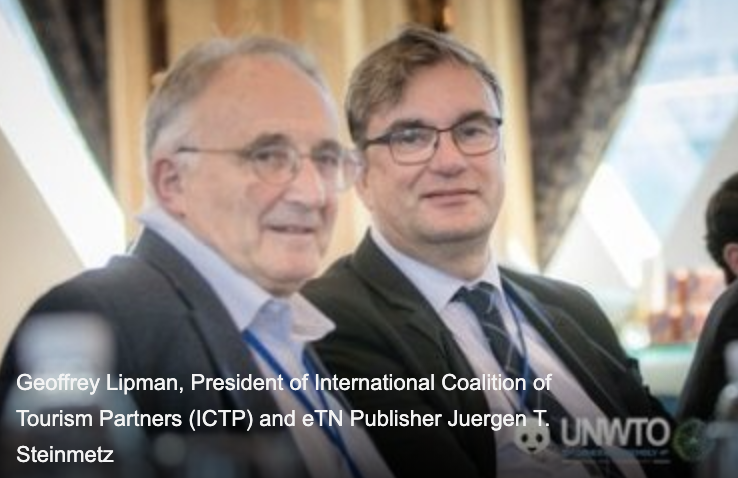
eTN becomes a SUNx SDG 17 Partner calling for Climate Sanity in Tourism on Earth Day
In nature, nothing exists alone is the message for Earth Day 2019. Announcing the public launch of its “SDG17 Partners Program” on Earth Day 2019, Professor Geoffrey Lipman co-founder SUNx, calls and president of the International Coalition of Tourism Partners (ICTP) asks the Travel & Tourism sector to join its “Plan For Our Kids” and take the “Climate Sanity” Pledge.
Professor Lipman, former Executive Director at IATA, President of WTTC and Assistant Secretary-General UNWTO, said:
“I’m confident that Travel & Tourism will play a leadership role in the global shift to a New Climate Economy: we just need a pathway for change and that lies in our faith in the next generation”
SUNx a legacy for Planetary Champion Maurice Strong has created a “Plan For Our Kids”, aiming to recruit 100,000 STRONG Climate Champions to advance its vision of a no Carbon 2050 sector totally compliant with the evolving goals of the Paris Accords.
He added “During the past year we have seen a welcome intensification of the pressures for a new commitment to Climate Sanity, which stops discussing whether climate change is existential and just gets on with solutions. That’s the common message from Greta Thunberg’s Friday’s for Futures and AOC’s Green New Deal: it’s the message from Earth Scientists and Nobel Economists: it’s the plea from Sir David Attenborough.
”Lipman concluded “SDG 17 Partners will share our long-term vision on the fact that Climate Change is eXistential and that we have to act NOW, as if this Earth Day is the first day of the rest of our lives. We all have different starting positions, based on our separate realities: but we have a shared goal of meeting the Paris Agenda and together taking a “No Carbon 2050 moonshot”. We can deliver Climate Friendly Travel ~ measured plans: green growth: 2050 no carbon proof “
Juergen Steinmetz president of the eTN Corporation said “We are proud to become a SUNx SDG 17 Partner and provide preferential support for this great cause. As long as I have known Geoffrey Lipman, he has been drumming home the message that Climate Change is eXistential and that if we don’t fix it now, it will fix us. We are in, and will use all our links, like ICTP and the African Tourism Board to support Climate Friendly Travel. going forward”.
For more on SUNx and its SDG 17 Partnership Program please contact: go to www.thesunprogram.com
What is Earth Day?
The first Earth Day on April 22, 1970, activated 20 million Americans from all walks of life and is widely credited with launching the modern environmental movement. The passage of the landmark Clean Air Act, Clean Water Act, Endangered Species Act and many other groundbreaking environmental laws soon followed. Twenty years later, Earth Day went global, mobilizing 200 million people in more than 190 countries and lifting environmental issues onto the world stage.
On April 22, 1970, millions of people took to the streets to protest the negative impacts of 150 years of industrial development.
In the U.S. and around the world, smog was becoming deadly and evidence was growing that pollution led to developmental delays in children. Biodiversity was in decline as a result of the heavy use of pesticides and other pollutants.
The global ecological awareness was growing, and the US Congress and President Nixon responded quickly. In July of the same year, they created the Environmental Protection Agency, and robust environmental laws such as the Clean Water Act and the Endangered Species Act, among many.
One billion people
Earth Day is now a global event each year, and more than 1 billion people in 192 countries now take part in what is the largest civic-focused day of action in the world.
It is a day of political action and civic participation. People march, sign petitions, meet with their elected officials, plant trees, clean up their towns and roads. Corporations and governments use it to make pledges and announce sustainability measures. Faith leaders, including Pope Francis, connect Earth Day with protecting God’s greatest creations, humans, biodiversity and the planet that we all live on.
Earth Day Network, the organization that leads Earth Day worldwide, has chosen as the theme for 2018 to End Plastic Pollution, including creating support for a global effort to eliminate primarily single-use plastics along with global regulation for the disposal of plastics. EDN is educating millions of people about the health and other risks associated with the use and disposal of plastics, including pollution of our oceans, water, and wildlife, and about the growing body of evidence that plastic waste is creating serious global problems.
From poisoning and injuring marine life to the ubiquitous presence of plastics in our food to disrupting human hormones and causing major life-threatening diseases and early puberty, the exponential growth of plastics is threatening our planet’s survival.
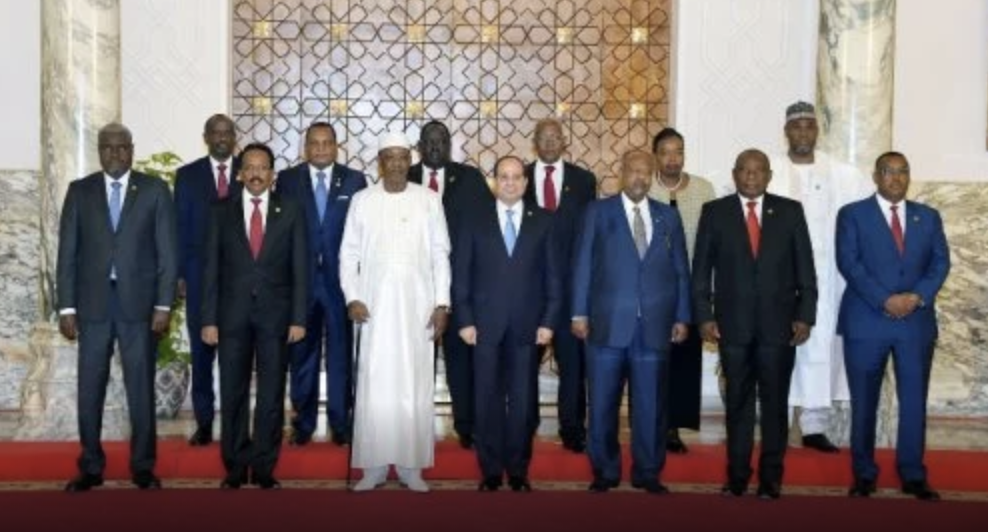
Sudan Tourism Industry: ATB President St. Ange wants Africa to stand by Sudan
People in Sudan are tasting freedom for the first time. It will be impossible to go back and tourism is a way to eventually rebuild the confidence and economy of this great nation.African Tourism Board (ATB) president Alain St. Ange had monitored what is happening in Sudan.
He said: “The situation that Sudan is facing needs for Africa as a whole to understand their dilemma and to be by their side.
The Government change in Sudan now needs to move to the reconstruction phase and enable their tourism industry players to rally and put the economy on the road of consolidation.

The USPs (Unique Selling Points) of Sudan are really sought after assets. Their pyramids are some of the biggest in the world and their underwater world in Sudan’s Red Sea remains a real gem.Members of the Sudan tourism industry are invited to join the African Tourism Board without charge. The African Tourism Board remains committed to being by their side.Currently, there are four members from Sudan registered in the ATB Directory
In the meantime, African Union leaders Tuesday have given Sudan’s transitional military council three months to achieve power transfer to civilian rule stressing that this delay should not be prolonged.
The meeting convened by the Egyptian Abdel Fattah al-Sisi who is also the Chairperson of the African Union in Cairo attended by the leaders of Chad, Djibouti, Somalia, South Africa, Ethiopia’s deputy prime minister, head of African Union Commission, foreign ministers and presidential envoys of Kenya, Nigeria, South Sudan and Uganda.
The meeting was held on the backdrop of a two-week delay given to the Sudanese military council by the Peace and Security of the African Union to hand over power to civilian rule.
The consultative meeting was briefed by Moussa Faki chairperson of the AU commission and who was in a two-day visit in Khartoum to assess the situation and met with the Sudanese stakeholders.
“The participating countries recognized the need to give more time to the Sudanese authorities and the Sudanese parties to implement these measures, taking into consideration that they will not be lengthy, and recommended that the African Peace and Security Council extend the schedule given to the Sudanese authority for three months,” said the statement.
After a meeting held with the military council last Saturday, the Freedom and Change forces decided to suspend talks with the military accusing them of working to reproduce the regime of President Omer al-Bashir and refusing to recognize their revolutionary legitimacy.
The head of the TMC political committee Omer Zain al-Din who negotiate with the opposition forces for his part says that they want only to establish a comprehensive government representing the whole political spectrum.
The meeting stressed that the Sudanese authorities and the political forces should work together in good faith to address the current situation in Sudan and to speed up the reestablishment of a constitutional regime.
This democratic political dialogue should be owned and led by the Sudanese themselves, “including all Sudanese parties including the armed movements,” further stressed the statement.
The Sudanese opposition groups said they will mobilize the street to press the military to fully respond to their demands.
However, some point to the need to get rid of Islamist generals in the military council as a condition to compose with the Sudanese military on the formation of the transitional institutions.
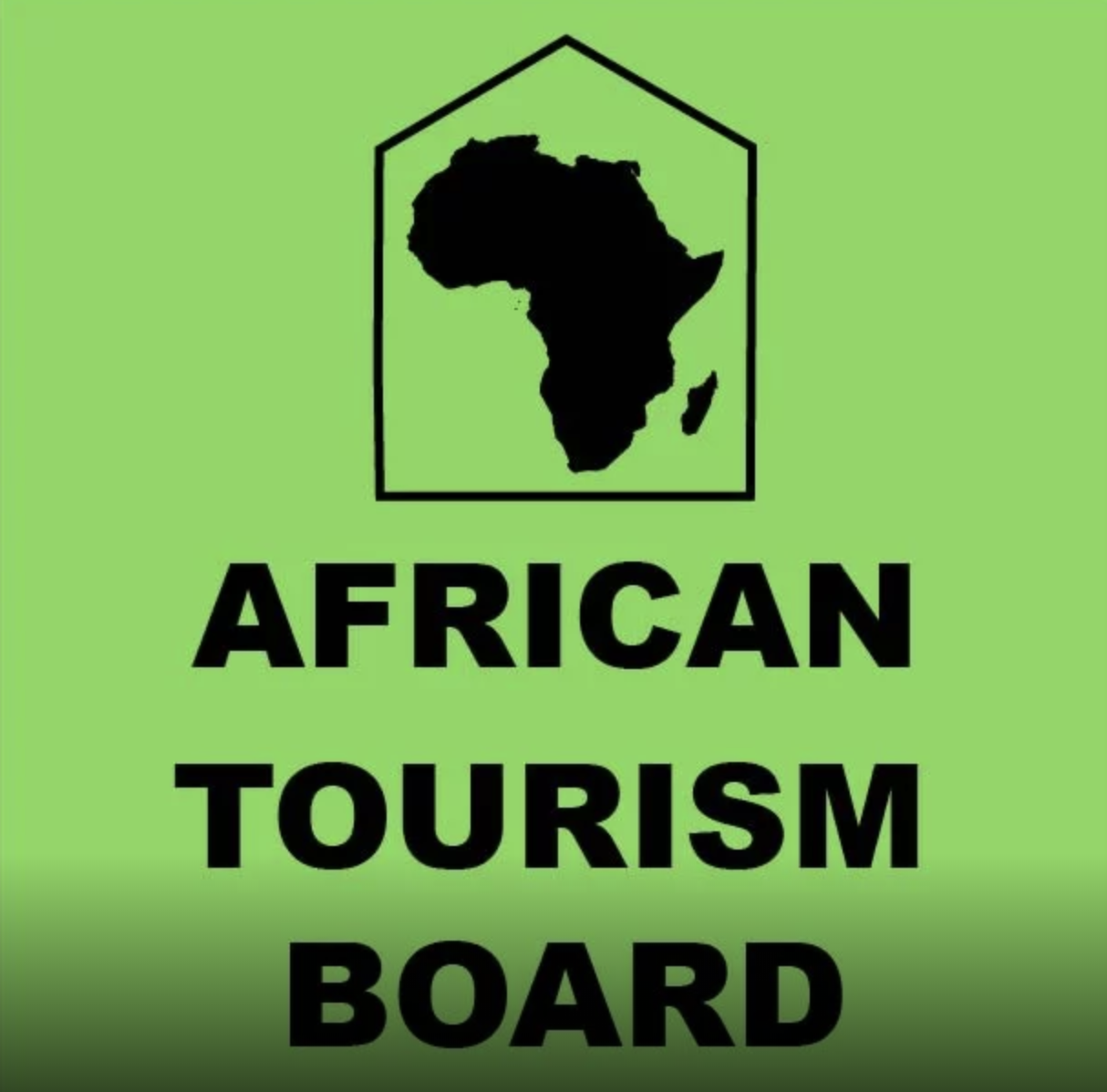
African Tourism Board launch on Thursday: More details just released
The African Tourism Board is ready to be launched in Cape Town on Thursday during the upcoming World Travel Market at the Cape Town International Convention Centre,
Conference Theatre.
A president and a CEO will be introduced during the launch event.
The focus of the launch event is diverse and includes Peace, Environment, Investment, Marketing, and Security.
African Tourism Board will be exhibiting at the World Travel Market on Stand AP12

15.30-15.40 Welcoming remarks
Juergen Steinmetz
Interim chairman of African Tourism Board
Chairman International Coalition of Tourism Partners
Introducing the African Tourism Board, Vision, Board Members, African Leaders,
Introduction of the new ATB President
TOURISM, INVESTMENTS & PEACE:
IT’S A PEOPLE BUSINESS

15.40-15.55
Dr. Taleb Rifai
Former UNWTO Secretary-General
2015-2017
A SPECIAL PLACE: CAPE TOWN

15.55-16.00
Enver Duminy
CEO Cape Town Tourism
A MINISTER OF TOURISM SPEAKS:

16.00-16.05
Hon. Moses Vikati
Minister of Tourism & Environmental Affairs
Kingdom of Eswatini, formerly Swaziland
AFRICA TOURISM LEADERSHIP FORUM AND AWARDS

16.05-16.10
Kwakye Donkor
CEO African Tourism Partner
Ghana & South Africa
THE ROLE OF CAMEROON TOURISM

16.10-16.15
Francoise Kameni Lele
AFBS Cameroon
TRAVEL & TOURISM SECURITY AND SAFETY

Keynote Speaker
16.10-16.40
Dr. Peter Tarlow, USA
Travel Security and Safety
www. safertourism.com
AFRICAN LUNG: IT’S A LAUNCH TODAY

Launch Announcement
16.40-17.00
Professor Geoffrey Lipman
President International Coalition of Tourism Partners
President SunX
The launch of Africa Lung, the most ambitious travel & tourism climate response program with its central focus on Africa.
Reaching out to Overseas Markets
THE US MARKET POTENTIAL: NOT ONLY NEW YORK OR LOS ANGELES

17.00-17.05
Juergen Steinmetz, president eTN Corporation
Inbound markets from USA
CHINESE TOURISTS: HOW TO DO IT

17.05-17.10
Doris Woerfel, CEO Southern Cross Experience, South Africa
China inbound market for Africa
TRAVELERS FROM ISRAEL: A HUGE POTENTIAL

17.10-17.15
Dov Kalmann, Israel
Israel inbound market for Africa
WHY INDIANS WANT TO EXPLORE AFRICA

17.15-17.20
Arjun Mukund, T&A Consulting, Delhi, India
Indian inbound market for Africa
The Road Forward for African Tourism Board

I HAVE A DREAM!
17.20-17.30
Alain St. Ange, Seychelles
Former Minister of Tourism Seychelles
President St. Ange Consulting
THE GLOBAL TRADE SHOW FOR AFRICA

17.30
Carol Weaving
Managing Director of Reed Exhibition Africa
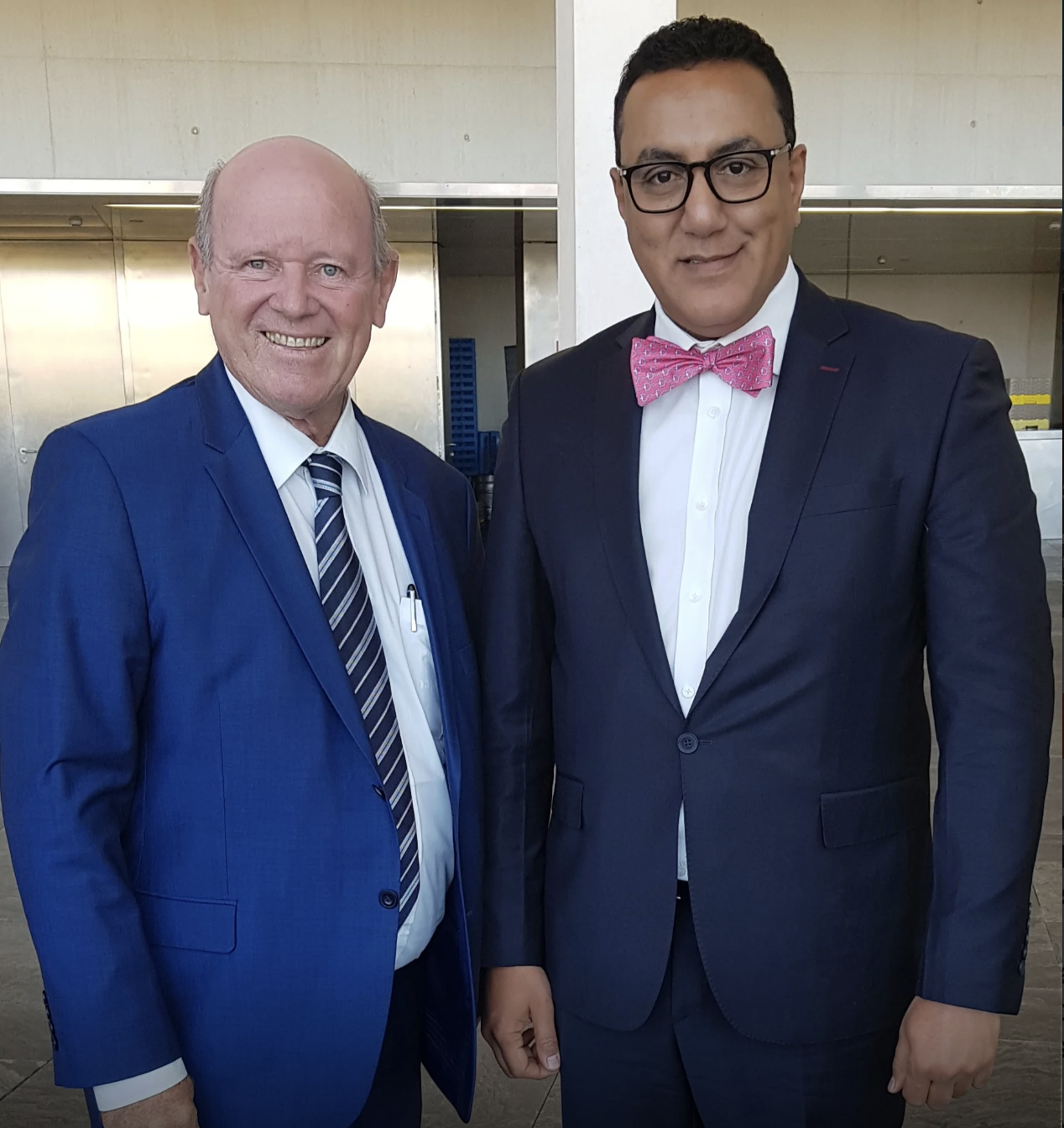
WTTC Summit 2019 Seville: The Untold Story
The World Travel and Tourism Council just finished their annual summit 2019 in the Spanish City of Seville last Friday.
A record number of delegates listened to presentations from fellow top leaders of the largest industry in the world. All of this was streamed live to the world. However, the conversation everyone had waited for with former US President Barak Obama was excluded. Perhaps the $4,000.00 price tag for non-members required the organizer to shield the former popular American president from public listeners.
eTN reached out to about 100 of the CEO’s, delegates and ministers that attended the 2-day event last week and everyone said the networking opportunities at WTTC summits was the real value for them to attend such a high profile event. See and to be seen is the true perk here. Top travel- industry people meet with other top CEO’s in the hallways and coffee shops or hotel suites. Some delegates only attended the opening ceremony and the Obama session but were roaming to shake hands with business partners, ministers and even heads of state.
Big business is done this way. It starts often with an exchange of ideas and can trickle down to billion-dollar transactions.
A WTTC summit is also the place a CEO can have a cup of coffee with a fellow CEO from a competing company.
Former Seychelles Minister of Tourism, Civil Aviation, Ports and Marine of Seychelles Alain St. Ange, who now leads his own consulting company, met with Kenya Tourism Minister Najib Balala consolidating the working cooperation between the two tourism personalities.St.Ange and Balala have been friends for a number of years and both men are seen as continent leaders in the field of tourism. Alain told eTN about his exchange with the First Lady of Kenya who delivered her speech at the WTTC summit.St.Ange said: “Minister Najib Balala of Kenya and me are expected to meet again in Nairobi shortly to discuss tourism and the development of tourism in Africa.”
This is a typical opportunity only such Summit offers.
WTTC is a different type of event. Changemakers meet behind the facade of top-notch presentations. Attending is a priceless opportunity.
However, reporting about the Seville summit was expensive for publications having to invest their own money to send a journalist and therefore had minimum results when it comes to instant and detailed news coverage.
Strangely there was no hosting support for journalists by the organizer according to PR consultant David Tarsh.
Hosting the WTTC Summit is expensive and seems to have a short life span as well unless the host destination is also willing to spend marketing Dollars to reach out to media and get the desired attention of the world.
This did not happen in Seville. Many requests from eTurboNews for example to include a series of interviews and destination coverage was never responded to by Seville Tourism Officials. Seville as a destination could have easily shined with global visibility.
eTurboNews is a proud media partner with WTTC.
www.wttc.org

About the African Tourism Board: Top important according to an African American Tourism Expert
Drew Barrett, a Chicago based African American tourism expert and consultant, thinks the newly founded African Tourism Board(ATB) is very important and potentially valuable to the nations of Sub-Saharan Africa.
ATB will celebrate its official launch on April 11 during the World Travel Market in Cape Town and has moved to a world of attention.
<The nations of Sub-Saharan Africa are very hungry for and in need of growth of their inbound international tourism business. Most, however, have a steep learning curve, over which they must overcome to achieve any measurable incremental results. Most are steeped in best practices of a bygone error of global tourism marketing if they are doing anything at all. Most are not.
Nations like Kenya, Tanzania, South Africa have significant global brand equity for leisure tourism. Others like Ethiopia, Nigeria, Ghana and again South Africa; are a compelling destination for business tourism. Yet on the extreme opposite end of the attractiveness spectrum others, due to conflict and a total lack of internal security are not in the running.
All nations of Sub-Saharan Africa with any viable tourism product are seeking to up their game, but have to reconcile a penchant, if not add to investing, and in many cases, mis-investing in energy, data +telecommunicationss, and transportation infrastructure to achieve modern global standards. They are missing there real opportunity.
The most readily available economic growth engine for all nations of Sub-Saharan Africa is their adventure, art, community, cultural, ecological (flora + fauna) and handicraft tourism products; in which they should invest in both development and marketing. The immense profit potential of such well planned and implemented investments, will return profits; which will pay for everything else.
I have two Sub-Saharan African nations, Kenya and South Africa, digress from World Class Tourism Marketers, not having a clue as to what to do; because they forsake a focus on their indigenous roots, attempting to promote being global business meeting and conference destinations; a playing field on which they cannot compete, for so many reasons.
I have just last week, submitted a comprehensive, preliminary strategic tactical concept proposal to a Northwestern Sub Saharan nation. I had developed similar proposals for three other nations. In each case, I have been working with someone who has strong connections to government decision makers; but not with any preconceived disposition toward action. In the most recent case, my contact is a division of the Ministry of Tourism.
Nigeria, a few years ago, invested in the development of a Culture and Music festival which it could market globally. The problem with some post colonial nations is, they are addicted to seeking the help of postcolonial consultant intermediaries of European and North American multinationals, for expertise. The problem is those consultants do not have the expertise necessary to enable the success of such an undertaking.
The consensus is to invest in building grand hotels, great roads, and transportation; and tourists will come. Wrong, they just end up with choking foreign debt and no tourist.
Again, the African Tourism Board, can be the way forward for the Nations of Sub Saharan Africa to be able to monetize their most readily available natural resource, as previously stated.
African Tourism Board brings to those nations both internal and external subject matter experts, professional practitioners, industry resources and massive implementation capabilities; in a unified platform which can teach the leadership of the nations of Sub Saharan Africa how to successfully market their destinations and tourism assets, to the billions of ready, willing and able international tourist.

African Tourism Board Launch: Climate Friendly Travel initiative “Partnerships for Change” to be revealed
The African Tourism Board Launch at the World Travel Market in Cape Town on April 11 will be the place Brussels based Professor Geoffrey Lipman will reveal his Climate Friendly Travel initiative.
Professor Geoffrey Lipman was the first president of the World Travel and Tourism Council (WTTC) from 1989 to 1999. WTTC revealed earlier this month that African Tourism is booming. It is important for Professor Lipman to launch his new global initiative in Africa.
A soft launch of his new initiative will be explained at the upcoming WTTC’s Summit in Seville, Spain next week.
Lipman shared the logo to promote his new program today with eTurboNews
Lipman explained the logo will pick up the Greta Thunberg message for the Travel & Tourism sector. Lipman added the logo will be the symbol of Climate Friendly Travel measured to manage: Green to Grow: 2050 Proof to Innovate.
It shows the late Maurice Strong, the father of sustainable development and the inspiration for his plan to put 100,000 STRONG Climate Champions across all UN States by 2030, to help in the essential transformation to the New Climate Economy.
Professor Lipman noted the symbol for SDG 17 “Partnerships for Change”, saying that the only future is a shared one, with the public sector, private sector and civil society joining the existential war on climate change together. This will go country by country: community by community.
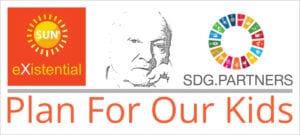
Lipman also revealed that SUNx will be unveiling an icon project at the African Tourism Board launch on April 11, that will help to support a global scale climate resilience initiative, that links rainforest preservation, biodiversity conservation and sme entrepreneurship, with the latent potential of African Travel & Tourism.
More information on the African Tourism Board and the launch event on April 11 can be seen at www.africantourismboard.com
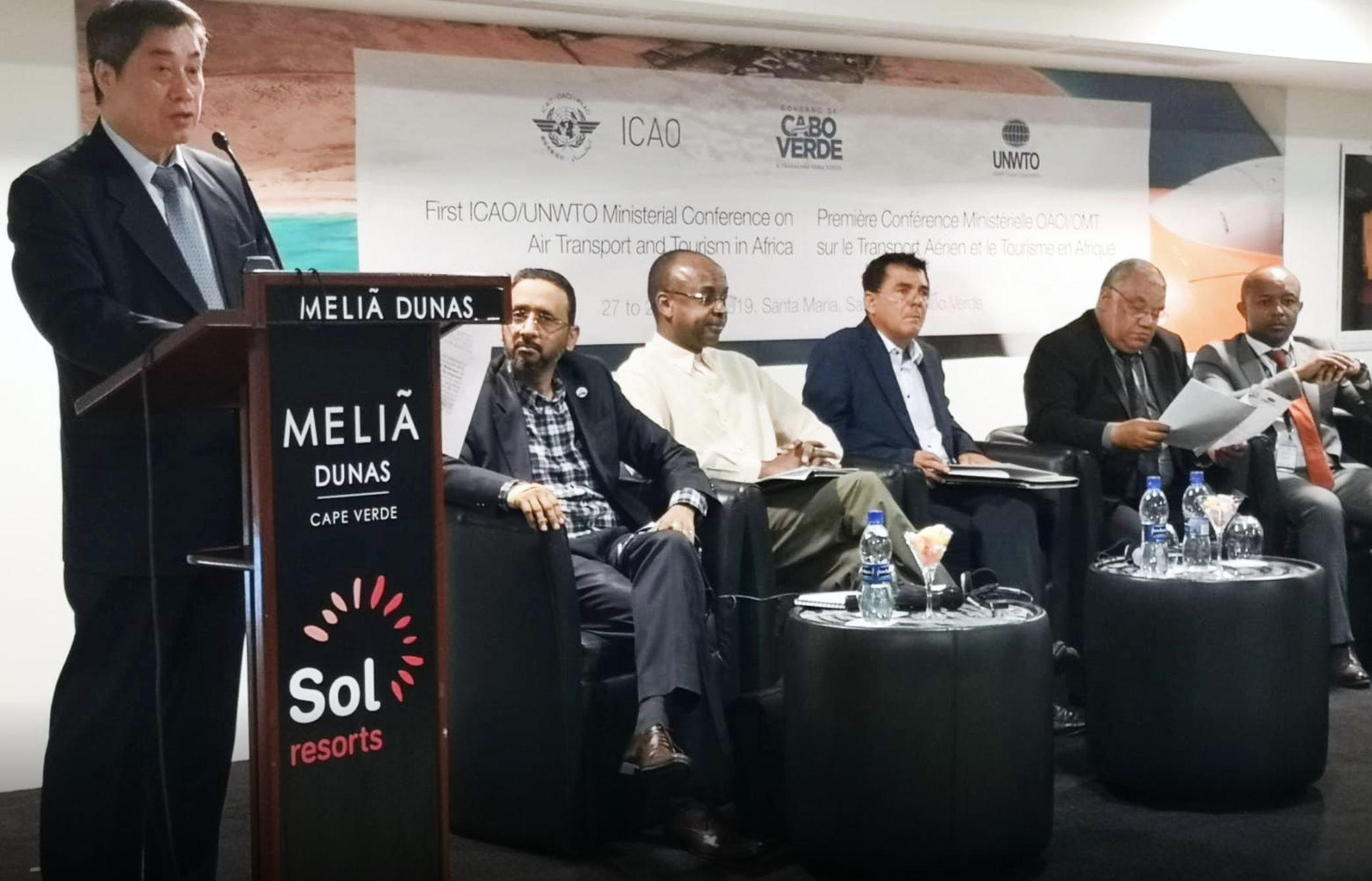
What is the discussion at the UNWTO / ICAO Ministerial Conference on Tourism and Air Transport?
A Panel discussion is ongoing and a packed program are planned today for delegates in Sai Island, Cabo Verde attending the First UNWTO/ ICAO Ministerial Conference Tourism and Air Transport.
Air Transport and Tourism Policies: Regulatory convergence to maximize and balance their benefits
Air Transport and tourism depend heavily on each other and are essential engines of trade and economic growth for both developed and developing countries.
Despite the synergies, there can be conflicts between aviation and tourism policies due to the difficulties of States in balancing the interests of their airlines and the optimum development of their tourism industries. Separate sectorial policies result in a fundamental disconnect, which constitutes a severe deterrent towards the development of both sectors. How do we enhance policy coherence between the two sectors, harmonize the regulatory frameworks, and prevent separate sectoral policies? How can we strike a balance to maximize the overall benefits of tourism and air transport in the national economy?
What is the current status of Africa’s regulatory framework and what is its impact on tourism and air transport (the Lomé Declaration and the related Action plans both for Air Transport and for Tourism?
How can Africa benefit from and implement the joint UNWTO and ICAO Medellín Statement on Tourism and Air Transport for Development? How can the African Governments promote cooperation and compatible decision-making among transport and tourism authorities and other ministries in charge of related portfolios, including finance, economic planning, energy, environment and trade?
What are the challenges encountered by tourism stakeholders in reflecting tourism business interests in national and regional air transport policies?
Connectivity and Seamless Travel: Best practices to serve tourists and passengers
Aviation and tourism are a customer-focused economic sector.
While there is no single definition of air connectivity, it can be viewed as the ability of a network to move passengers involving the minimum of transit points, which makes the trip as short as possible with optimal passenger satisfaction at the minimum price possible. The realization of seamless travel can improve overall travel experience, which in turn fuels tourism demand.
With the recent launching of the Single Africa Air Transport Market (SAATM), open skies over Africa may soon be a reality, building the necessary regulatory framework to increase international intra-Africa travel.
How do we optimize the flow of passenger traffic through the air transport system? How can we generate sufficient demand for direct air services between African sub-regions, especially between the East-West coasts?
How well do current air service agreements (ASAs) contribute to connectivity and what are the prospects of air transport liberalization? What constitute the bottlenecks and slowdowns of seamless travel in the air transport system? What regulatory schemes can be used or developed to assure essential air services to Least Developed Countries (LDCs), Landlocked Developing Countries (LLDCs) and Small Island Developing States (SIDS)?
What are the existing best practices and how could they be extended and adapted to other regions? What are the factors influencing airline choices for different market segments (the intercultural dimension)?
Funding and Financing for Development: Pragmatic measures to build a transparent, stable and predictable investment climate
Infrastructure deficiencies in the aviation and tourism sectors have long been an issue in Africa. While plans are in place to develop and modernize aviation infrastructure, relief is years away at best.
In the meantime, there will be lost opportunities for creating jobs and spurring economic growth. Another issue is the proliferation of taxes on tourism and air transport despite the fact that the industry recovers a vast majority of its own infrastructure costs through payments of user charges, rather than being financed through taxation.
Revenue raised by taxes can often be outweighed by the relinquished economic benefits as a result of dampened demand for air travel.
This Session will focus on
a) the creation of good governance and enabling the environment to build business confidence and encourage investments, and
b) the consolidation of planning and development efforts for aviation and tourism infrastructure in multi-modal and urban planning initiatives. What are the challenges of financing development projects related to the tourism and air transport sectors, particularly in LDCs, LLDCs, and SIDS?
What are the success stories in financing tourism and air transport projects? How do consumers perceive taxes, charges, and others levies and how to ensure transparency of taxes and charges to passengers and tourists?
Why is the limited volume of international public finance and assistance for development currently available for aviation and tourism infrastructure projects?
Travel Facilitation: Advancing visa facilitation in supporting economic growth
Travel facilitation aims at maximizing the efficiency of border clearance formalities while achieving and maintaining high-quality security and effective law enforcement. Allowing passengers/tourists to cross international borders safely and efficiently contributes significantly to stimulating demand, enhancing the competitiveness of States, creating jobs and fostering international understanding.
In spite of the great strides made in recent decades in facilitating tourist travel in Africa, there is still room for considerable progress. For example, electronic visa processes and delivery could make travel more accessible, convenient, and more efficient without a diminution of national security.
States should also look into increasing cooperation on bilateral, regional and international travel facilitation regimes. How can new technologies be used to make travel more accessible, convenient and efficient? How to define and implement policies which facilitate international travel and tourism while ensuring the security and integrity of traveler identification and border controls?
How well do e-passports, e-visas and other documentation deal with emergent threats to security? How could the African States learn from other effective best practices?
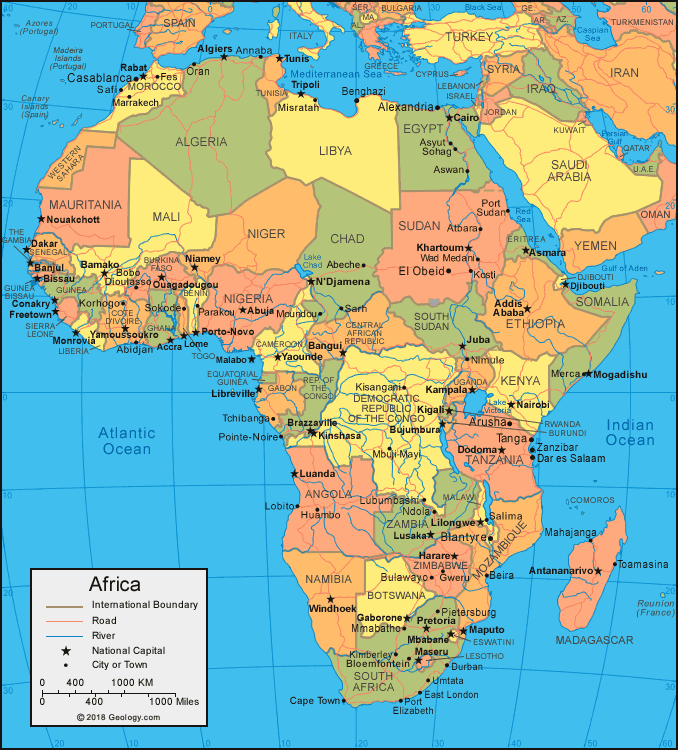
UNESCO, African Union and Ethiopia Role Model on World Press Freedom?
Ethiopian Airlines, has been chosen as the Official Carrier for the 2019 World Press Freedom Day Global Conference to be held in Addis Ababa from May 1-3, 2019.
This conference is not without controversy, however. According to Journalists without Border, terrorism charges have been systematically used against journalists ever since the 2009 terrorism law took effect. The charges carry long jail sentences and allow the authorities to hold journalists without trial for extended periods. There has been no significant improvement since the purges that led to the closure of six newspapers in 2014 and drove around 30 journalists into exile. On the contrary, another six-month state of emergency was proclaimed in February 2018, which the government could again use to arrest critical journalists and ban the public from watching or listening to certain broadcast media. The Internet and social networks are often disconnected while physical and verbal threats, arbitrary trials, and convictions are all used to silence the media.eTN Chatroom: Discuss with readers from around the world:
The conference is jointly organized by UNESCO, the African Union and the Government of Ethiopia under the theme ‘Media for Democracy: Journalism and Elections in Times of Disinformation’.
UNESCO Spokesperson Roni Amerlan said: ” The offer by countries to host World Press Freedom Day marks their recognition of the value of the right to press freedom and freedom of expression.
We have often held World Press Freedom Day celebrations in countries in transition and we do not think that we should restrict our support for the recognition of press freedom and their participation in this awareness-raising event to countries which rank at the top of NGOs’ rankings.
Every year, 3 May is a date which celebrates the fundamental principles of press freedom, to evaluate press freedom around the world, to defend the media from attacks on their independence and to pay tribute to journalists who have lost their lives in the exercise of their profession. World Press Freedom Day was proclaimed by the UN General Assembly in 1993 following a Recommendation adopted at the twenty-sixth session of UNESCO’s General Conference in 1991. This in turn was a response to a call by African journalists who in 1991 produced the landmark Windhoek Declaration(link is external) on media pluralism and independence.
At the core of UNESCO’s mandate is freedom of the press and freedom of expression. UNESCO believes that these freedoms allow for mutual understanding to build a sustainable peace.
It serves as an occasion to inform citizens of violations of press freedom – a reminder that in dozens of countries around the world, publications are censored, fined, suspended and closed down, while journalists, editors and publishers are harassed, attacked, detained and even murdered.
It is a date to encourage and develop initiatives in favour of press freedom, and to assess the state of press freedom worldwide.
3 May acts as a reminder to governments of the need to respect their commitment to press freedom and is also a day of reflection among media professionals about issues of press freedom and professional ethics. Just as importantly, World Press Freedom Day is a day of support for media which are targets for the restraint, or abolition, of press freedom. It is also a day of remembrance for those journalists who lost their lives in the pursuit of a story.
The 26th celebration of World Press Freedom Day is jointly organized by UNESCO, the African Union Commission and the Government of the Federal Democratic Republic of Ethiopia. The main event will take place in Addis Ababa, on 1 – 3 May at the African Union Headquarters. This year’s theme“Media for Democracy: Journalism and Elections in Times of Disinformation” discusses current challenges faced by media in elections, along with the media’s potential in supporting peace and reconciliation processes.
World Press Freedom Day will also be celebrated worldwide. Events will be organized in several countries to raise awareness about the importance of press freedom and journalists’ safety. More information of events will be available in the Events Map soon.
As the United Nations agency with a specific mandate to promote “the free flow of ideas by word and image”, UNESCO works to foster a free, independent and pluralistic media and the safety of journalists.
As the official carrier, Ethiopian will provide air transport service to the 1000-1500 participants who will be coming to Addis Ababa from around the globe.
Group CEO of Ethiopian Airlines, Mr. Tewolde GebreMariam, remarked, “We are honored to have been chosen to serve as the official carrier for this year’s World Press Freedom Day Global Conference. We are all the more delighted to be part of this noble cause which seeks to advance press freedom around the world.
Global, regional and national media stakeholders, high-level government officials, and journalists from across the globe will take part in the conference which will be held at the African Union Commission headquarters.
